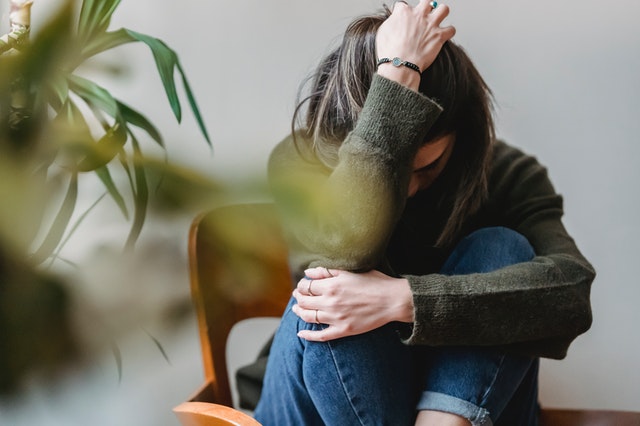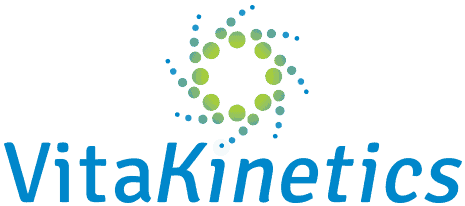Radically Resilient Health Podcast
How Emotions and Stress Affect Your Recovery Process
In this special episode of Radically Resilient Health, Dr. Carolyn Dolan sits down with her friend Leah GiaQuinta who shares a story of recovering from harsh circumstances and emotional stress. She tells how the tenets of Vitakinetics to Eat Well, Sleep Well, Move Well and Supplement Well helped her cope with tough situations for her and her family.
Connie Wray: (00:00)
Welcome back to radically resilient health. On today’s episode, we are going to hear from a single mom of four, who has found that during stressful life situations, following the principles that Dr. Dolan lays out for radically resilient health is paying off. We’ll dive into why she believes that sleeping well, eating well, moving well and supplementing well with Vitakinetics brought resiliency and health back into her very stressful life. Dr. Dolan. It is so great to be back with you on radically resilient health. And I’m really thrilled to sit down and talk with Leah today because this really gives us an insight into the everyday stresses of life and how powerful your principles and Vitakinetics can be to helping us manage the everyday stresses of life. And I thought I would kind of start with you. When did you discover that Vitakinetics was also a useful tool for managing the stresses that we go through in daily life? Well, first of all,
Dr. Carolyn Dolan: (01:00)
The principles are fundamental for our daily living. What I personally realized as a mother was that some of the things that were the biggest stressful components, maybe psychologically to me was parenting. And it was something that wasn’t going to go away. It wasn’t, I couldn’t exercise it away. I couldn’t sleep it away. And that’s where for me personally, it was one of those things where I realized it was like an aha moment. Like these kids are going to stress me to death. I mean, I joke, but it really is one of those things where the psychological stress of managing those things, along with all the other things that go on in life and, you know, when your child gets sick or it needs something that I realized that the stress component is an inflammatory process. And that is one of the things we talk a lot about inflammation and the importance of optimizing it, not turning it off.
Dr. Carolyn Dolan: (01:51)
That’s also why we wanted to develop a supplement that was safe to take on and off, you know, something we’re going to get addicted to. And if you missed a day, it wasn’t a big deal because that’s another difficult thing for me to do when life gets busy, even more than that, it’s a supportive role, but it’s not a replacement. You know, and I think one of the reasons why I wanted to interview my dear friend, Leah, to have her share a bit of her story was she had stress to another level related to parenting and each component while very important played. One of them in particular played a particularly important role for her. Um, while she can share a bit more of her story directly, but while the supplements played a role supportive role, the role of connection was really powerful for her to support her through some very stressful times.
Dr. Carolyn Dolan: (02:44)
Leah and I have been friends for how many years has it been almost as many as I’ve been married? Cause we met shortly after my husband and I got married. So it’s been 15 years plus, but she is like a sister from another mother. We have just instantly bonded, but she also has a background in physical therapy, which is also where we connected over our clinical background, but she has a very fascinating story. And it’s not one that anyone wants to have to share. I do think it’s very inspirational. And like I said, one of the important parts of her surviving through some challenging times was her connection. So with that, I’m going to introduce Leah and she can share a bit more of her story and share with us how connections really helped support her through some challenging times.
Leah GiaQuinta: (03:34)
Thank you, Carolyn I’m. So I’m so honored that you considered me as part of your amazing podcast. And so, so nice to finally get to talk to you too, Connie you’re right. I mean, everyone has their journey. I’ve been loving following along with your podcast and your journey and it’s, it is just interesting to see how it integrates with, there are so many personal stories that yeah, the fundamentals of what you talk about, play into a little bit about me. And I think it is kind of fun for the two of us to get together on this because a lot of the, what brought us together was probably yeah, the physical therapy and, and the science part. And we, you and I can geek out about the science part with the two of us for hours. What other best friends sit down and talk for an hour about macrophages, right. But where it is interesting is just when it comes into the, the human element, the personal story, talking about our friendship, how long has it been?
Connie Wray: (04:34)
It gets interesting that, um, both of you are physical therapists, but that, you know, Carolyn’s mission in the beginning was really, I’m going to prove that supplements don’t work. And then here she is today after her research, seeing that they actually do work and I too am a regular user of Vitakinetics and, you know, and I’ve used it on and off for varying reasons in my life. And I, I’m just curious because Carolyn talks a lot about this is that, you know, you know, when she started her research, it was really to disprove that these supplements were working. And then in, in her research, she sees that they do work in your background, Leah, where you kind of in that same thought process, like, okay, these, you know, I don’t really know if this is really going to work. You know, couldn’t these really benefit someone.
Leah GiaQuinta: (05:21)
Yes. I think, I think that with anyone who has a background in evidence-based medicine, education and health care, it’s an hour innate nature as scientific thinkers to question, but the more we started discussing nutrition and supplements as an adjunct, the more it really did make sense. And to just piggyback on some of Carolyn’s comments, there’s a perfectionist piece in me. Right. And we kind of talk about that all the time. That’s my that’s my Achilles heel is it’s to want things to be black and white and to fit them into boxes. And parenthood is nothing like that. Um, parenthood is messy and it is hard to maintain. You can try your hardest to do all of the things, check all of the boxes, put the right nutrients and do the right exercises and all of that stuff. But let’s be honest, life, life just isn’t isn’t that way.
Leah GiaQuinta: (06:24)
And so for me, I think with parenting, the stress that comes with it, as far as I’m concerned, is that all of a sudden the responsibility for another human being lies on your shoulders and, and that’s, that’s a big burden there when that is a responsibility that’s placed upon you, you want to try and do your, your best, but you also have to take care of yourself. And it’s kind of like the whole concept of putting the oxygen mask on you first, if the ship goes down and for me, when, when life got messy and it was hard to maintain the menu that maybe I’d like to have, or, you know, the sleep schedules let’s get, we could really get into that sleep schedules and newborns. What’s that Carolyn, I remember as a new mom, you’re trying to keep track of feeding schedules. I think you were the first friend I’ve ever had. I mean, talk about black and white. You really tried to manage it with an Excel spreadsheet.
Leah GiaQuinta: (07:22)
And so, I mean, that’s just the length of how much that we will go to just write the ship. We all know that the waters aren’t always falling, especially in stressful situations where, you know, maybe you don’t get the full night’s sleep. Maybe you don’t get, um, you, you don’t have time to get that grocery list and get the right meal that you wanted to be able to have that for a little bit of security. I don’t have time. Ain’t nobody got time to be, to be sick or to not be functioning at your best. Especially with me with the four kids, you know, I don’t have time to be tired. I don’t, I don’t have the energy to be tired. Right. You know, you gotta gotta keep showing up. That’s where it really came in. For me.
Dr. Carolyn Dolan: (08:05)
One of the other things that you even, we even just recently talked about, you and I both have had injuries occur amongst our family close family members where it disrupted the routine. But one of the things that was really fascinating to me, well Vitakinetics was a tool that we could use to help support our loved ones, um, healing, um, feeling better healing, faster sort of thing. And trying to minimize the use of other pain medicine medicines. One of the things you described though, was you are incredibly connected to your community. And while I use that connect well as part of the fundamental roles of a health and wellness, you and I have talked a lot about how that’s played a role for you through a lot of your challenges and even for your kids, how your connections just to other people has really helped sort of bully you and, and your family. Through some challenging times, we promote Vitakinetics as that macrophage support for the inflammation, healing, and pain, and it’s, it can play a role, a supportive role. It can’t replace some of those other things that can be such a critical piece during challenging times. And I just wanted you to share a little bit about how you feel like that has affected, you know, your personal resiliency and even that of your family. For me,
Leah GiaQuinta: (09:33)
I, I suppose the best way to describe my story is that I like many other people encountered what at that time, what I considered a huge loss in my life. And that was the loss of my marriage. And with that started the cascade and the cycle, the process of grief for me, you could definitely replace my story with a million different stories and a million different scenarios. Any, any time, your life encounters, an unexpected twist where you don’t necessarily see it coming, it wasn’t your plan. Then that naturally comes with a deep sense of, of loss and pain. And, um, all of the stages that come with that. And in that place, your, your body just enters into a fight or flight place. What’s interesting is that we’ve talked about diet and emotion and the limbic system and all of that. I mean, the foods have all sorts of connections with our emotions, our status, and our behavior.
Leah GiaQuinta: (10:43)
I’m aware that that’s highly connected. And for me, what I learned when my sympathetic system kicks in and I am in a very, very high stress state, my appetite shuts down. So I actually, and I have to be careful about who I talk about that with, because I am very aware that that’s not the system, that that’s not, that’s not necessarily the reaction that everybody has. I I’m very aware that, um, there are a lot of people when they are in a stress state. Um, then it’s, it’s the opposite. So I ha I’ve had a couple of girlfriends say, um, yeah, I wish when I got stressed, I lost 30 pounds or whatever, but, but the people who love me the most, uh, looked at me and said, oh, we don’t like the way that looks either. Yeah. So anyway, I’m actually careful now that when I see people who have, um, obviously visibly experienced a huge weight loss, uh, to be careful, it’s our society is so quick to compliment that.
Leah GiaQuinta: (11:48)
And that’s not necessarily always the case. And always the reason I was conscious, I was aware that my body was going through a lot of physiological changes in response to the cards that life dealt me and the psychologic insults and the inflammation that came with that. I knew that I knew that I needed to continue to nourish my body because I needed to continue to diverse my kids. So that for me, um, I might not be able to choke down a meal, you know, in those, in those days where, um, I was experiencing such emotional trauma and pain, I could, I could rely onthe Vitakinetics and, and just feeling as if at least, you know, I’m, I’m getting some good stuff, some good nourishment and my body, we are in a place that we are not out of the woods yet, but we, and when I say me, we, I say me and my four children, we had turned the page in a new chapter.
Leah GiaQuinta: (12:46)
We’re moving forward, we’re moving right along. And yet we’re not out of the woods yet. So, uh, my story just recently includes my, my oldest son. So he’s, my oldest son is 13. I have a 13 year old, an 11 year old, a nine year old and a six year old, my 13 year old. One of the changes that, that comes with divorce oftentimes is relocation. And we were lucky enough to just, we, we needed to move, but we were lucky enough to stay in our same neighborhood. And so we moved just about 10 blocks away from our old home. And kids are resilient and we all are resilient, but, but change still is a process. My kids experienced another change over the weekend. Oftentimes divorce is like I said, it’s a process and change. And so their, their new experience over the weekend was that there, their dad was remarried.
Leah GiaQuinta: (13:41)
And so they all came home and we started our new week, one foot in front of the other. And sure enough, my 13 year old we’ve, we’ve been, we’ve got all sorts of coping mechanisms and nutrition and sleep and movement. Those are all some of them, but we use as many as we can. And he said, Hey, I think I’m going to go for a little ride on my one wheel. And he has a motorized skateboard, and that’s in the world of COVID and all of the things, that’s been his little tool of independence. So he’ll get on his motorized skateboard. He’ll ride around the neighborhood, he’ll get the fresh air, he’ll get the vitamin D L but some use again. And, and that’s been one of his little adjuncts that he can use to kind of manage the changes that are going on in his life.
Leah GiaQuinta: (14:25)
So he hopped on his motorized skateboard. And, uh, within 10 minutes I got a phone call. It was one of those that only a mama’s gut, just I knew the phone call. I, I knew what I was picking up. I knew something was wrong and sure enough, there were, um, chokes and sobs on the other end. And I said, oh my gosh, I am on my way. He had, he had crashed. He had racked, he had fallen. And I said, where are you? And he said, I’m down by our old house. I immediately ran to my new neighbors house and said, I have an emergency. Can you, can, can you take in my other three children, I’ve got to go get Sam he’s hurt our new neighbors. Several of them banded together. We got to go get him. I hopped in my car, drove down the street.
Leah GiaQuinta: (15:18)
And what I found was my big baby, my oldest kid. And he was surrounded by our old neighbors. And so that was the story that I had shared with you that you just, that we just sat back. And that was the silver lining. The beauty of our situation was the fact that when sometimes when you’re in these places of term turmoil, you look around and there’s in community is there. And it was so grateful. And, uh, you know, of course the whole story about him wiping out in front of our old house. I I’m almost, we’re almost joking. Gosh, it feels like a lifetime movie and sure enough, on the way to the hospital, he, he shared, he said, sometimes I ride past our old house when I miss our old life. And boy, isn’t that a vulnerable, um, place to be to, to just be able to share, you know, sometimes as, as much as we keep pushing forward, as much as we keep trying to adapt the, the mantras that change is good and, and we’re going to be okay. Sometimes, sometimes you just need a day that to say, yeah, but what we used to have, I miss that sometimes
Dr. Carolyn Dolan: (16:28)
What I really loved about this. I mean, it has so many emotions, highs and lows in the story, but I have, I had a similar experience with when, um, our middle son was sick in the hospital with his ruptured appendix, just the community of people that came in to support you see you in that time of need. And that, that connection to other people is so important. And even for your son to maybe have had to feel that support in that moment, maybe allowed him to really move forward. Emotionally, you are doing an amazing job with those kids. And while this is not wished upon anybody, your kids are learning resiliency in a way that maybe most people don’t have that experience anyways. And I’m really honored that you shared that part of your story with our listeners. I’m just honored to be a part of your story too. This is, it’s just really amazing. I feel like
Connie Wray: (17:31)
To that this is, um, you know, we talk about what does radically resilient health really mean? And even though you have this word radically, it really doesn’t need to be as radical as we think, right. In this sense, your son, he kind of had this touchstone, which was this old house and these old neighbors. And like in a way, it was bringing him comfort. And I think, you know, radically resilient health is finding those moments of comfort and finding those moments of when you recognize you’re not in a good space, like what can I do to get my self into a good space? And I love that you mentioned, uh, Tulia that, that food connection, you know, that connection to emotion. I had an eating disorder for a very, very long time. You know, I started making myself throw up at 13 years old and didn’t really get help for that until I was in my mid twenties.
Connie Wray: (18:20)
And when you said food and that connection to emotion, that was the biggest thing that I learned through all of that. It was never about the food. It was never about the food. It was about control and it was about my emotions. And how could I control my emotions so that I could get back to enjoying food in a normal way. You’re also right in the sense that it’s so important to have connection. When we have stressful moments in our life, you know, we have a lot of different people who either they internalize and they don’t reach out, which can be devastating. Carolyn knows. We had gone through a very, very serious family tragedy in 2018, and I would not be where I am today. Had I not had the connection of the incredible friends and family that were around us to lift us up during this horrific time.
Connie Wray: (19:09)
It wasn’t radical. I leaned on my friends and family. And I think oftentimes, especially as mothers, we don’t give ourselves enough credit for the amount of work that we do and realizing that we can lean on our friends because we’re all, you know, we’re all moms and we all go through that same kind of experience as well. So being able to recognize that it’s okay, that gosh, I’m feeling stressed and you know, I’m just going to stick with taking my Vitakinetics. I am going to get up every morning and go to my yoga class. It’s what gives me peace. Like, I don’t know what I would do if I wasn’t working out at the gym four nights a week with my husband, I would lose my mind. And I know this now I’m in a place in my life where exercise is a de-stressor. So I ha I, it is it’s the makeup of my life,
Leah GiaQuinta: (19:58)
Right? And, and everybody has their different dis D stressors and the, I call it self care. And that can be, that can come in any way, shape or form. And how important that is. Self care is also reaching out for help, which, which I have to say too. I have one more comment that I’ve been really thinking about this connection piece actually. And because Carolyn always gives me so much credit for it every time she does. I have a little bit of guilt that surrounds that because I don’t know that I can honestly take the credit as if I’ve actively sought it out. What I think, because we’re, we can overanalyze with the best of them is one thing that true about my personality. And, and also Carolyn’s, I won’t get off on a tangent because that’s a whole different podcast, but we are both helpers.
Leah GiaQuinta: (20:51)
We’re both Enneagram, two helpers. And some of the personality traits that come through with that is that helping other people is innate to who we are in an unhealthy way. We help people just to make ourselves feel better, right. In a healthy way. We do it. We just go along our ways and we help. And it’s innate to who we are. It’s not really a learned behavior. It could be a learned behavior, but it’s almost an autopilot behavior for us when the community has stepped forward. For me, I’ve often wondered. I it’s not necessarily, if anything, I do actually need to ask for help more, but I think that it’s actually a beautiful butterfly effect, I suppose, that perhaps it’s or a boomerang that perhaps on my good days, you know, these connections that we make and healthy places as part of, you know, we make choices to eat well, we make choices to sleep well.
Leah GiaQuinta: (21:46)
We make choices to move well. But when we, when we connect well, you know, in, in our, in our sunny days, then I, I can only imagine that perhaps that might be why or when, or how people show up when, when you’re not having, when, when you’re unhealthy. And I’m so grateful for that, because truthfully, my go-to like you said, honey is to hold up when I’m and, and I, and I can, I can snuggle on. And, uh, Carolyn and I sometimes talk about this re stress responses, fight flight, or freeze. Carolyn, I think you’re a flight, but I’m a freeze. I’m a freeze. And I will, I will cover myself. Like I say, I tell people if I’m in hunger games, I’m the pita. I I’ll, I’ll just kind of sink into the mud until it’s all over. But thank God I don’t sink in all the way. And I had, because I have enough people that go around me when I start to sink that say, okay, come on, we gotta keep moving. We’ve got to keep,
Dr. Carolyn Dolan: (22:53)
Well, thank you so much, Leah, for sharing your story. It’s so important for people to hear, you know, while we talk about all these important components of eat well, move well connect. Well, it’s not about perfectionism actually, exactly the point life throws curve balls at you every day. And you, you do what you can, you accept where you accept, where you need, you meet yourself and you meet people where they are in that moment. And that perfection is never the goal and that you can still be radically resilient without the meeting, all of those things perfectly. So thank you so much for sharing your story with
Leah GiaQuinta: (23:31)
Us. Thank you.
Connie Wray: (23:34)
It is truly radically resilient health. It’s finding those ways in the craziness that we live in to sleep well to well, to move well, to connect well and to supplement well. And you know, there may be days where you eat well, but you’re not moving well. There might be a day where you connected well and you moved well, but you didn’t eat well. And I think again, the, the joy of this podcast is that you can always come back to center. There’s always a way that you can start using those components together. We’re not perfect. I love that in this particular podcast, we really touched on perfection. I think it is so imperative, especially as moms that we work in that self care and these principles that Dr. Dolan have put together, it’s, it’s that simple. It is to sleep well. It is to eat well is to get out and move well in that fresh air and connect well and to supplement well. So again, Leah, thank you so much for sharing your story and thank you for listening to radically resilient health. You can learn more about Vitakinetics and our podcast by visiting Vitakinetics.com. And we thank you for listening to radically resilient health with Dr. Carolyn Dolan.

Mena
Radically Resilient Health Podcast Small Steps Conquer Mountains with Special Guest Mena Spodobalski Evoke Fitness owner, Mena Spodobalski, shares her joys and struggles toward radically resilient health. Health doesn't always have to seem radical. The best workout...
Recovery From Substance Dependency With Lori Windfelt
Radically Resilient Health Podcast Recovery From Substance Dependency With Lori Windfelt Radically Resilient Health is not about the absence of disease, injury, or stress, it is the ability to recover and make positive choices to support your overall health. Lori...
Emotional and Mental Resiliency – With Special Guest Dusty Braun
Radically Resilient Health Podcast Emotional and Mental Resiliency With Dr. Dusty Braun Our mind and body are intimately interconnected in ways that we can't really comprehend outside of science. We oftentimes think ourselves or our minds as separate from our body,...
Available at our partner locations

690 West 2nd St. Suite 101
Reno, NV 89503

13981 S Virginia St #402b,
Reno, NV 89511








